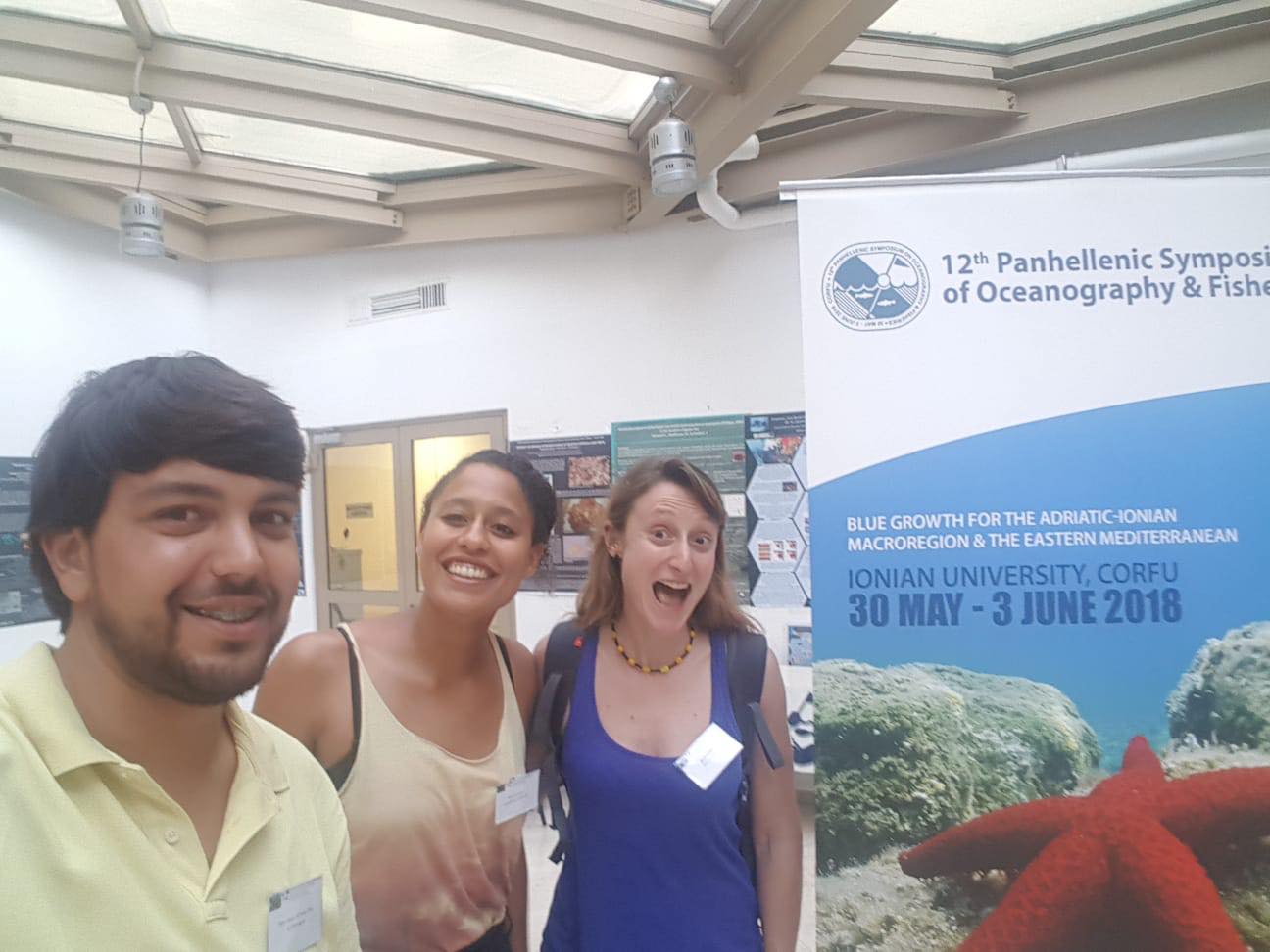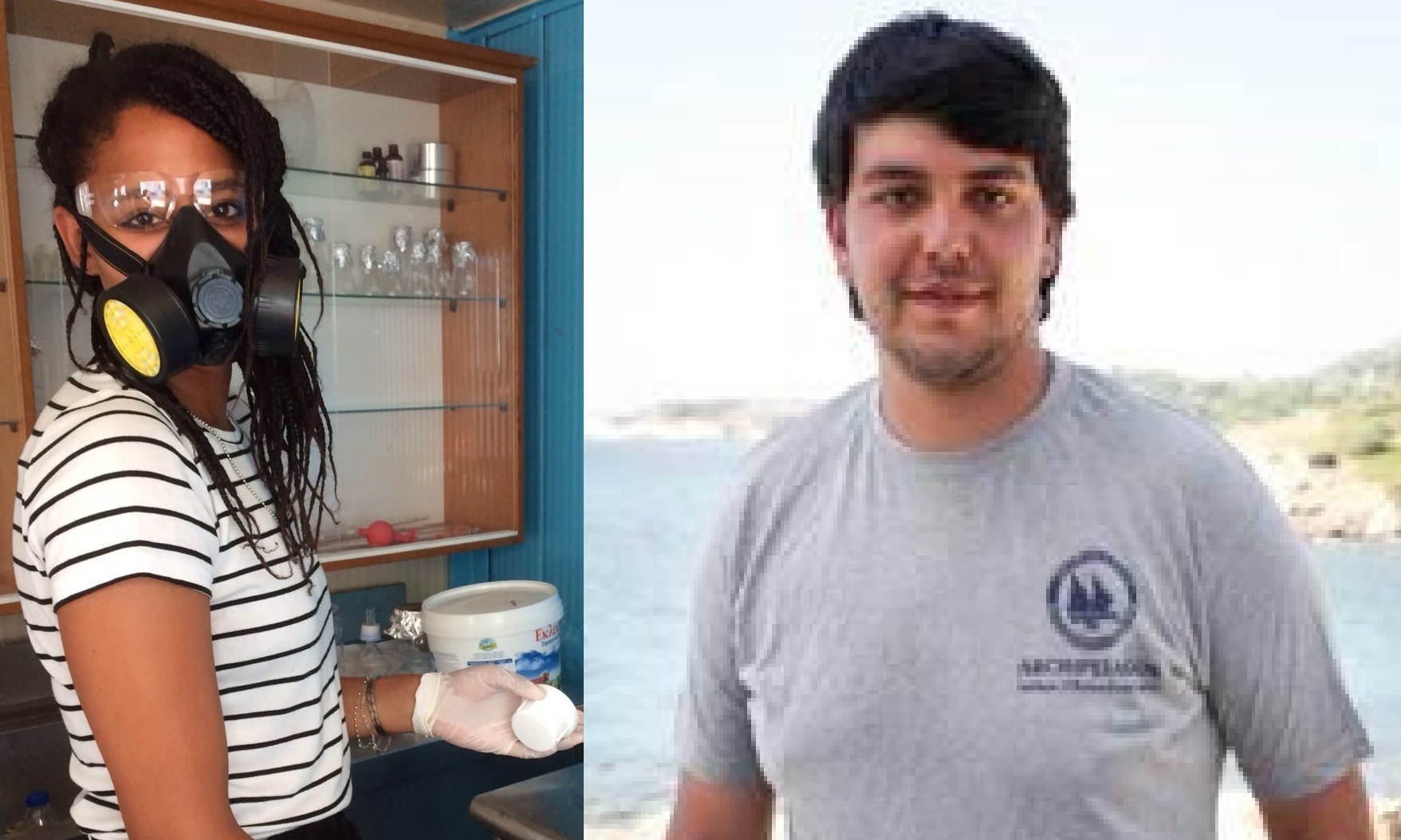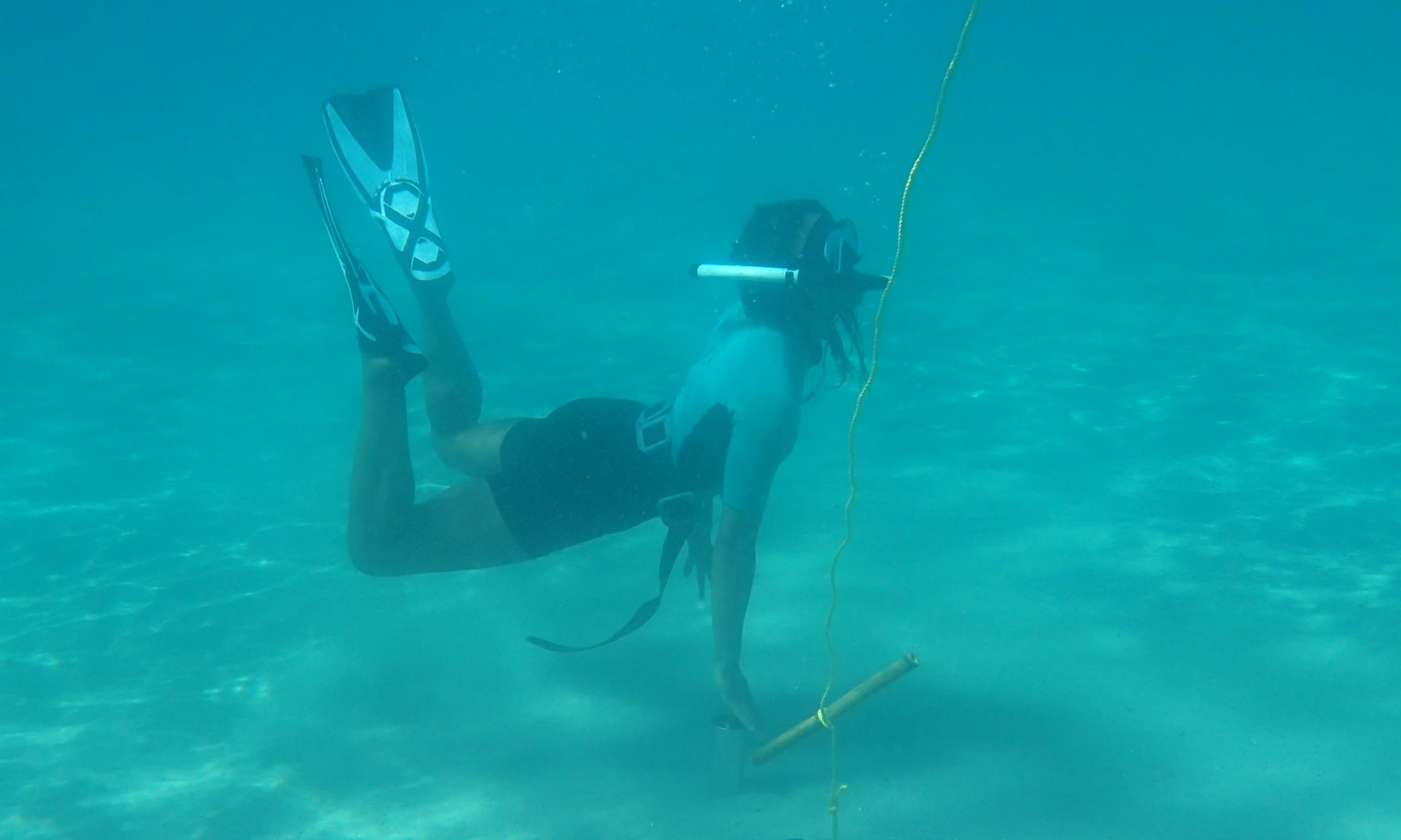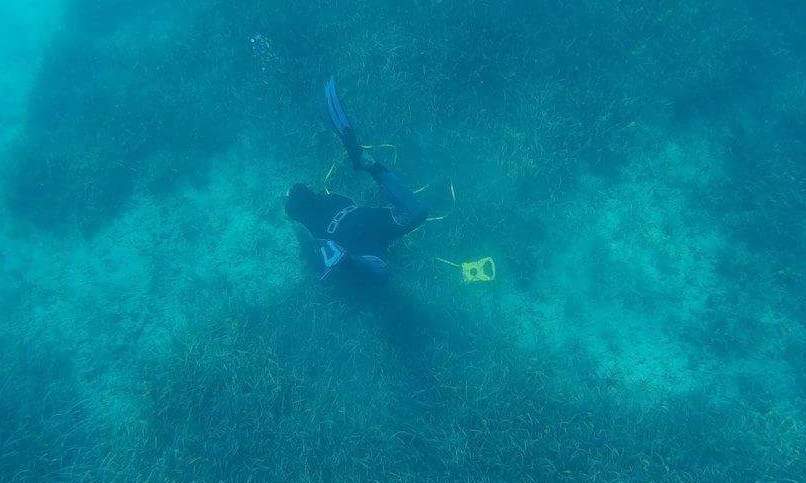Help Junior researchers to Symposium in Corfu!
My Travel Story
First, let us introduce ourselves:
Vera: I recently graduated from the University of Utrecht as a Marine Scientist. For the last 18 months I have devoted myself to researching Microplastics. Microplastics (< 5 mm) are ubiquitous in the marine environment and are a growing concern. Plastics have a long lifetime. However, through processes such as wave abrasion, UV radiation and microbial activity they will eventually breakdown forming microplastic particles. These particles will descend to the bottom of the aquatic environment as they aggregate with organic matter. Here they become available to small animals living on the seafloor or riverbed. Knowing this, it raises a few questions: How much of these microplastics end up at the bottom of a body of water? How well can benthic organisms, such as barnacles and worms, and living tissue such as muscles cope with this form of anthropogenic pollution? I conducted my first research project at the University of Wageningen, where I studied the effects of microplastics on freshwater ground-dwelling macroinvertebrates. I found this experience very rewarding and chose to continue this research by joining the marine conservation institute Archipelagos in Samos, Greece. As a junior researcher I investigated the occurrence and spatial distribution of microplastics and developed a cheap and easily repeatable method.
Vítor: I am a junior researcher recently graduated from the University of Madeira in Biology. For the last 2 years I have researched invasive algae in the Mediterranean Sea. Invasive species are defined as species that are not native to an ecosystem and cause harm to the environment, human health or economy. Species that grow and reproduce quickly, and spread aggressively with the potential to cause harm are labelled as ‘invasive.’ Invasive algae are rapidly outcompeting seagrass meadows in the Mediterranean Sea. Seagrass meadows are one of the most important ecosystems in the Mediterranean Sea because they function as nursery grounds and stabilize nutrients and currents in the water. For these reasons, I dedicated my time studying the factors and consequences of the distribution of the most invasive algae in the Mediterranean Sea, commonly known as Grape Algae. I started studying this algae in the Canary Islands while at the University of La Laguna. After this project, I continued my research in Lipsi, Greece. Here I joined the marine conservation institute Archipelagos as a junior researcher/volunteer. I investigated the drivers behind the occurrence and spatial distribution of the Grape Algae.
Archipelagos is a non-profit and non-governmental organization committed to researching and defending the biodiversity of the Greek seas and islands, as well as the entire eastern Mediterranean. In order to successfully conserve the marine environment and raise awareness, gathering knowledge is vital. We both managed to successfully finish our research projects in Samos and Lipsi, Greece, respectively. Sharing our knowledge is as important as conducting the research itself. We are honoured and excited to have the opportunity to share our findings at the 12th Panhellenic Symposium of Oceanography & Fisheries coming June. During this three-day annual event we will be able to share and discuss our work with leading researchers in these fields, while hopefully gaining insight on how to continue and improve our research successfully.
Due to budget constraints Archipelagos Institute of Marine Conservation is unable to fund this trip. We have created this crowdfunding campaign with the hope that you can help us poor, but smart junior researchers fund our way to this awesome Symposium!
Updates
1-
Update From The Symposium On Oceanography And Fisheries

Hello to all lovely sponsors! Quick update of the 12th Hellenic symposium on Oceanography and fisheries in Corfu. The symposium has been amazing, a little bit hectic, but amazing. In addition to this Corfu is an amazing place. We are glad our colleague Valentina Costa could join us last minute! Since it is our first time to a symposium it is nice to have someone experienced around and of course Vale is lovely.
Thursday 31/5/2018 we had lectures on Invasive species. One of the lectures was in Greek, however a Greek colleague was so kind to translate. Later in the day we had lectures of PROTOMEDEA: “Towards the establishment of Marine Protected Area Networks in the Eastern Mediterranean” Most interesting were the two lectures: “Fish community structure at shallow sublittoral rocky reefs: areas of low versus high fishing pressure” and “How many fish? Comparison of two underwater visual sampling methods for monitoring fish communities” presented by Stelios Katsanevakis.
On Friday 1/6/2018 Vìtor (The distribution of the invasive Caulerpa cylindracea in Lipsi Island) and I (Assessment of microplastics distribution in shallow marine in Samos Islands, Greece) presented our poster presentations in 3 minutes to our audience. It is not easy to condense everything you know in such a short time, but everything went well. In between we enjoyed the inspirational speech of Dr. Paul Somerfield from Plymouth Marine Laboratory, Plymouth, UK. “Predicting the consequences of marine ecosystem in a complex world. ”
This morning we were sadly not able to attend the “Agia Zoni II” oil spill lectures, as it was all in Greek. We are slightly frustrated since we would have loved to learned more about this topic. However there is a full program and are looking forward to the inspirational speech of Prof Daniel Pauly (FishBase one of the many amazing accomplishments) from University of British Columbia, Vancouver, Canada. “Fish must breath: outline of the Gill-Oxygen Limitation Theory (GOLT)”
That’s all folks! We hope you enjoyed reading and we want to thank you again for all your donations and making our trip to Corfu possible.
Best wishes from Vitor, Vera and Vale
More Travel Information
-
Campaign Ended
€ 675
Total Donation Received-
68%
Funded -
€ 980
Goal Amount -
0
Days Left
-
-
Cost Calculator
-
Airfare/ International Flights
€ 480
-
Accommodation
€ 300
-
Local Travel Expenses
€ 200
-
-
Funders
-
Niki Cesta Funded € 20 EUR
May 25, 2018 -
Phil and Jo Malone Funded € 500 EUR
May 06, 2018 -
Anonymous Funded € 30 EUR
May 06, 2018 -
Ana Funded € 25 EUR
May 06, 2018 -
Silvia Funded € 20 EUR
May 06, 2018 -
Pieter Funded € 25 EUR
May 05, 2018 -
Jaap Funded € 10 EUR
May 05, 2018 -
Valentina Funded € 25 EUR
May 05, 2018 -
Dan Clarke Funded € 20 EUR
May 04, 2018
-



